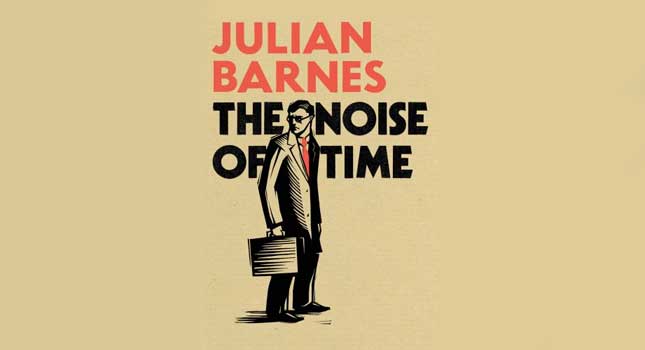
It’s not that he’s doing it on behalf of Shostakovich as such, although there is a certain amount of love to it all, it’s more that when there are no more fiery cats in the trees the birds get to land where they want. In this case he aims for three main branches in the composers life, three points in his history that he uses to define his minor struggle against and quasi-capitulation to the overlords that controlled his life.
It’s narrated by an unknown biographer that sees all of Shostakovich’s trials and tribulations, as well as into his heart, mind and soul to present both his outward persona and his hidden truth, or at least a stab at his hidden truth. It dives into layers of depth at regular intervals as it grapples with the fragility of his position as the USSR’s leading composer during Stalin’s all consuming reign of power and Nikita Krushchev’s following softer but no less relentless approach.
It makes for a fascinating read, which highlights the difficult compromises humanity needs to make at times just to survive. In Shostakovich’s case it was all the more obviously compromised because of his position and his dedication to music. The reality is that under Stalin in order to continue to compose he was forced to make concessions to the state.
It’s easy to look back on artists during that time and say they weren’t true to their music or simply that we understand, but the truth of the matter is that we don’t really, and we probably never will entirely. However, the threat of firmer intervention from the state is evident at every turn in The Noise Of Time and you are left with no misconception of his precarious situation. For example, one of the most dangerous of his altercations with power was a trip to the Bolshoy Dom to be interrogated about his connection to his patron, Mikhail Tukhachevsky, who was accused of treason and shot during Stalin’s military purges.
The book is delivered with incredible efficiency at 192 pages, making it feel almost novella in its size, but underneath its more austere confines it hides a lot of detail to paint a good picture of it all. Despite the lean nature of the book, it’s still an incredibly sophisticated and erudite read with a lot of thinking points and inspiration to do your own research into the history of the situation and the music that came out of it.
There are also references to Russian writers like Gogol and fleeting mentions of Dargomyzhsky’s romances that draw you into the book as you try to understand it all from the various standpoints that are laid out by Julian Barnes. It worms its way into your psyche with ease and consolidates your thought processes in relation to that period of history for the people of Russia, while also giving us a glimpse of a remarkably talented and complex individual.
The Noise Of Time may not be one for the masses, but for anyone looking for light and depth, insight and connection, the story of Shostakocich’s bravery in cowardice is a thoroughly absorbing and enjoyable read. Its own lack of convention, along with its literary experimentation and refusal to make concessions is as much a credit to the memory of the composer as it is to the genius of Barnes’ writing.
Julian Barnes, The Noise Of Time review: 4/5


